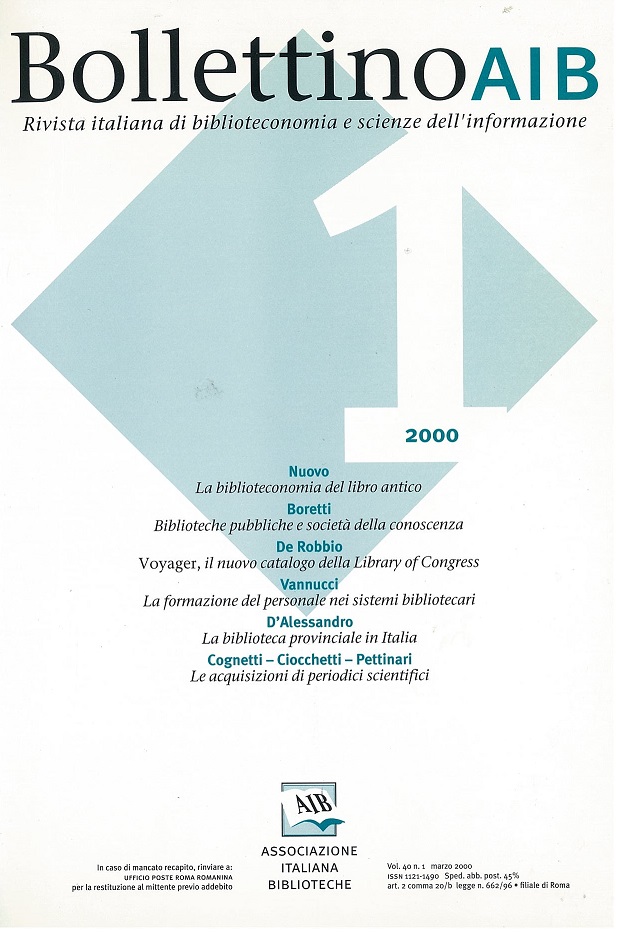Public libraries at the threshold of the knowledge society
Main Article Content
Abstract
Public libraries, whose customers are the whole of society, have felt, more than any others, the possible modifications deriving from the emerging market of so-called "global information" and have begun a path of redefinition of their function. It is clear that public libraries will have new competitors, but it is not so easy to find a strategy. In fact, there are still many interdependent variables, and many are the possible scenarios that can be derived not only from technological innovation, but also from the processes of economic, political, social and cultural change which will come about as a result of competition between markets, government policies and new legislation in the sector. It is quite clear therefore that there is not just one future which we must try to foresee. After all, if change is placed at the centre of the reflection on quality by the most up to date management theories, it is important to think there will certainly be no lack of opportunities for that change. This seems to be the current debate at international level, following a process which must be continued, a process that, over and above the vehemence with which Internet, but not just Internet, has disturbed the sector of information and communication, is much slower in manifesting its consequences in the most varied aspects of social organization and therefore in the organization of libraries.
Knowing that the period during which the paper resources will have to cohabitate with electronic ones will be a long one, librarians continue to formulate some very even sensational hypotheses on the future, and there are those who think that the virtual library will annul the differences between the different types of library. Changes in organization and services are demonstrated through contributions from librarians on the situations and experiences of Danish, English, Scotch, and United States libraries. Digital libraries, distance reference services, universal catalogues, interlibrary loans on a world scale are thus the innovations, or the hypotheses of innovations that keep librarians busy in their professional discussions. Finally, above every other subject the theme of management emerges, the increasingly more necessary ability to foresee the expectations of the public and rapidly respond to them, understand costs, fix prices, recover resources, manage personnel, demonstrate the value of what is being sold. And because libraries are in fact an expression of the society that they must serve, we must try to understand the expectations that are becoming apparent. It is therefore possible to imagine the public libraries of the future as places of entertainment and virtual experiences, but also as fundamental elements in the society of knowledge, in which the application of intelligent technology will become widespread.
In the international panorama it is hard to find a place for the Italian situation, due to the fact that there is no national policy for libraries, while information policies assign no role to them. The Copenhagen Declaration calls on governments to define a national policy on information that acknowledges the unique and vital role of public libraries and sustains them with a specific legislation, but in Italy the lack of a national coordination that defines the different tasks and forms of cooperation between the various institutional levels is strongly felt.
Article Details

This work is licensed under a Creative Commons Attribution-ShareAlike 4.0 International License.
